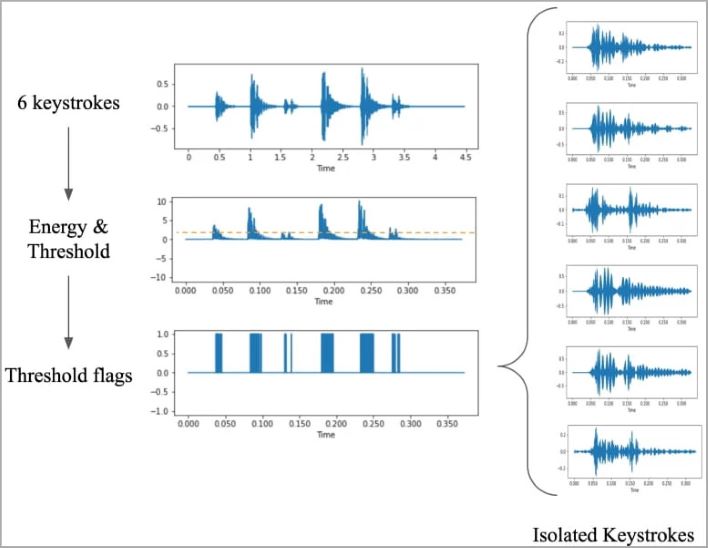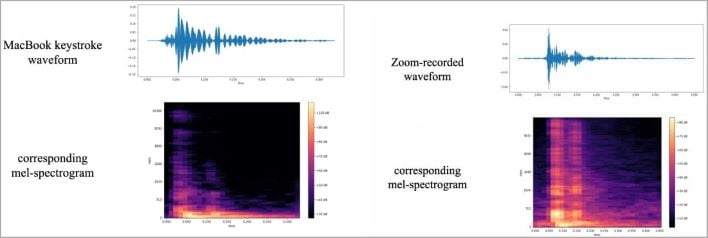This AI Can Steal Your Password With Alarming Accuracy By Listening To You Type

In a recently published paper submitted by a research team (comprised of members from three British universities), it was found that they were able to build a deep learning model to listen to keystrokes on a keyboard and then decode what keys were pressed. The self-training AI, called CoAtNet, could somehow record the unique wavelengths of each key and postulate which key was being depressed at a scarily high accuracy of 95 percent.

To achieve that accuracy, the team simply used a regular MacBook Pro for typing, with an iPhone 13 Mini sitting 17cm away. If that wasn't concerning enough, CoAtNet was able to achieve an accuracy of 93 percent and 92 percent when recording via Zoom and Skype respectively.

The research and CoAtNet proves that acoustic-based attacks are rather easily developed and dangerous if used by nefarious individuals. CoAtNet was relatively easy to train, as it only required the British team to gather data by pressing 36 keys on the MacBook Pro 25 times. The researchers then produce waveforms and spectrogram images that made how each of those keystrokes sound visually identifiable, which CoAtNet could process and learn from.

What all this means is that sensitive data, such as passwords, messages, and bank account information can be easily intercepted by a third party, even via video calls. While it's still too early to tell if this AI development will take off, we still can't stress enough how important it is to stay vigilant with how you enter your personal information on your computer. Password managers and biometric authentication (e.g. fingerprint readers) can help minimize the need for manual entry. The paper also suggests frequently changing your password or typing style, which are effective, but less practical methods. If you think switching to a quieter keyboard can fool CoAtNet—think again, the model has proved effective with that as well.

